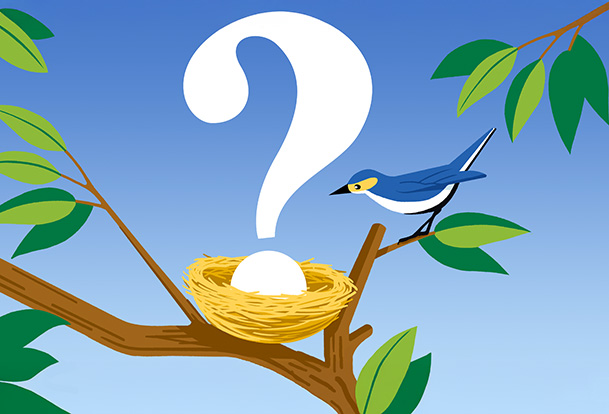Frequently Asked Questions: ETFs
Published on February 24, 2020
minute read
Share:
What is an exchange-traded fund (ETF)?
An exchange-traded fund is a basket of securities that trades on an exchange. That basket can include securities such as stocks, bonds, cash and more. ETF units trade like shares on a stock exchange.
What is an index fund?
An index fund is a portfolio of investments designed to mirror the performance of a specific market index. It may hold the same components and weightings as the index, or may track the index through derivative instruments or a sampling of the index holdings. Index funds are available as both mutual funds and ETFs.
Why buy ETFs?
ETFs can offer investors benefits such as built-in diversification, ease of trading and low fees.
How do I buy or sell ETFs?
ETFs trade on exchanges just like stocks, so you can buy or sell them during market hours. The market price per unit closely tracks the value of the underlying securities in the fund. There are no minimum purchases, but you will generally pay a trading commission.
Can I buy options on ETFs?
Yes, you can purchase regular and long-term options on many ETFs. Open a detailed quote for an ETF and click on the "Options" tab to review available option contracts. You can also get a list of available options from the Montreal Exchange and the Chicago Board Options Exchange.
Do ETFs pay distributions?
ETFs distribute income and capital gains to investors. These distributions are taxable to investors, regardless of whether they are paid in cash or reinvested in the fund through a dividend reinvestment plan (DRIP)1. ETFs may also distribute a return of capital (ROC), which is not taxable in the year received. However, a ROC distribution lowers an investor’s adjusted cost base, which may result in a higher capital gain in the future when an ETF is later sold.
Are ETFs RRSP-eligible?
An ETF is a qualified investment for registered accounts (i.e., RRSPs, RRIFs, TFSAs, RESPs) only if it is listed for trading on a Designated Stock Exchange (DSE). Most Canadian and U.S. exchanges are designated exchanges and all ETF companies in Canada and the U.S. list their funds on designated exchanges. Canada's Department of Finance determines the requirements of a DSE. You can find a list of DSEs by visiting www.canada.ca and searching "designated stock exchanges."
Remember, there are risks and benefits associated with any investment. It's a good idea to weigh both the risks and benefits when determining if any type of investment is right for you.
RBC Direct Investing Inc. and Royal Bank of Canada are separate corporate entities which are affiliated. RBC Direct Investing Inc. is a wholly owned subsidiary of Royal Bank of Canada and is a Member of the Investment Industry Regulatory Organization of Canada and the Canadian Investor Protection Fund. Royal Bank of Canada and certain of its issuers are related to RBC Direct Investing Inc. RBC Direct Investing Inc. does not provide investment advice or recommendations regarding the purchase or sale of any securities. Investors are responsible for their own investment decisions. RBC Direct Investing is a business name used by RBC Direct Investing Inc. ® / ™ Trademark(s) of Royal Bank of Canada. RBC and Royal Bank are registered trademarks of Royal Bank of Canada. Used under licence.
© Royal Bank of Canada 2023.
1Dividends earned pursuant to DRIP may be subject to requirements imposed by the Income Tax Act (Canada). It is your responsibility to ensure that any associated tax requirements or obligations are satisfied.
There may be commissions, trailing commissions, investment fund management fees and expenses associated with investment fund and exchange-traded fund (ETF) investments. On or after June 1, 2022, any trailing commissions paid to RBC Direct Investing Inc. will be rebated to clients pursuant to applicable regulatory exemptions. Before investing, please review the applicable fees, expenses and charges relating to the fund as disclosed in the prospectus, fund facts or ETF facts for the fund. Mutual funds are not guaranteed, their values change frequently and past performance may not be repeated. For money market funds there can be no assurances that the fund will be able to maintain its net asset value per security at a constant amount or that the full amount of your investment in the fund will be returned to you.
Any information, opinions or views provided in this document, including hyperlinks to the RBC Direct Investing Inc. website or the websites of its affiliates or third parties, are for your general information only, and are not intended to provide legal, investment, financial, accounting, tax or other professional advice. While information presented is believed to be factual and current, its accuracy is not guaranteed and it should not be regarded as a complete analysis of the subjects discussed. All expressions of opinion reflect the judgment of the author(s) as of the date of publication and are subject to change. No endorsement of any third parties or their advice, opinions, information, products or services is expressly given or implied by RBC Direct Investing Inc. or its affiliates. You should consult with your advisor before taking any action based upon the information contained in this document.
Furthermore, the products, services and securities referred to in this publication are only available in Canada and other jurisdictions where they may be legally offered for sale. If you are not currently a resident of Canada, you should not access the information available on the RBC Direct Investing Inc. website.
Inspired Investor brings you personal stories, timely information and expert insights to empower your investment decisions. Visit About Us to find out more.










